- Write by:
-
Friday, March 18, 2022 - 13:17:36
-
383 Visit
-
Print
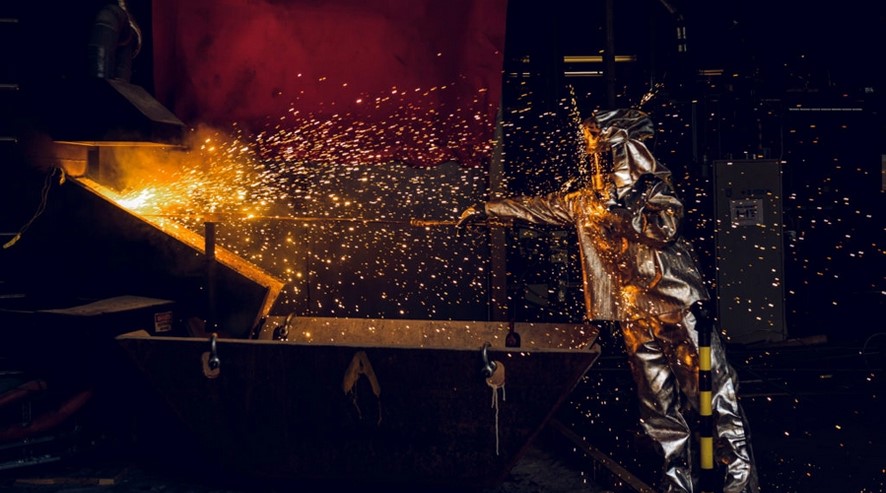
Mining News Pro - The Metals Company, formerly Deep Green Metals, an explorer of lower-impact battery metals from seafloor polymetallic nodules, announced Thursday that it has signed a non-binding Memorandum of Understanding with Epsilon Carbon to complete a pre-feasibility study for a commercial-scale deep-sea nodule processing plant in India called Project Zero Plant.
The company said targeted production capacity is more than 30,000 tonnes per annum (TPA) of an intermediate nickel-copper-cobalt matte product used for active cathode material (CAM) for Nickel Manganese Cobalt (NMC) and other nickel-rich cathode chemistries for lithium-ion batteries and more than 750,000 TPA of manganese silicate by-product expected to be used in manganese alloy production for the steel industry.
Mining international waters is in the spotlight as companies and countries are looking at minerals concentrated on the ocean floor that can be used in batteries for smart phones and electric vehicles. Last year, the company said the nodule resource is now estimated at four megatons (Mt) measured, 341Mt indicated and 11Mt inferred mineral resources.
In January, TMC announced the completion of its latest offshore research campaign, Environmental Expedition 5E, a targeted sampling campaign of both benthic and pelagic fauna with wider investigations to characterize ecosystem function on the abyssal seafloor.
The completion of the six-week expedition — the company’s fifth environmental campaign in the last twelve months — marked the latest offshore campaign required to develop an environmental baseline of the proposed operating environment in the Clarion Clipperton Zone (CCZ) of the Pacific Ocean and characterize the potential impacts of its proposed nodule collection operations to source critical battery metals from deep-sea polymetallic nodules.
The polymetallic nodule fields in the CCZ of the Pacific represent the largest known, undeveloped nickel resource on the planet. A DeepGreen-commissioned white paper found that nodules under exploration contracts in the CCZ contain more than enough battery metals to power one billion EVs and with a fraction of the social and environmental impacts when compared to land-based ores.
Environmentalists have called for a ban on deep-seabed mining that would extract resources including copper, cobalt, nickel, zinc, lithium, and rare earth elements from nodules on the ocean floor.
TMC said in Thursday’s release that through its subsidiaries, it intends to supply polymetallic nodules and onshore processing expertise while Epsilon Carbon intends to finance, engineer, permit, build and operate the Project Zero Plant. TMC has shared with Epsilon Carbon the near-zero solid waste processing flowsheet developed with Canadian technology and engineering firms between 2018 and 2021 and technical results from a pilot plant program completed in 2021 at FLSmidth’s facilities in Whitehall, Pennsylvania and at eXpert Processing Solutions’ (XPS) facilities in Sudbury, Ontario.
Epsilon Carbon intends to deliver a pre-feasibility report for a plant in India powered by renewables and with the targeted processing capacity of 1.3 million tonnes per annum (Mtpa) of wet nodules and production start in time to receive nodules collected from NORI-D area starting around Q4 2024, provided that TMC’s subsidiary NORI secures an exploitation contract from the International Seabed Authority.
The companies said they expect to enter a binding Heads of Terms for construction and operations of Project Zero Plant by September 30, 2022.
Safety, environmental and social impacts
“Over the last three years, we have engaged with many parties and visited plants around the world in search of the right onshore partners,” TMC CEO Gerard Barron said in the media release. “In Epsilon Carbon, we have found a rare mix: a proven operational execution track record in anode materials, a 21st century approach to industrial development grounded in making use of waste products, deep care about safety, environmental and social impacts, and an entrepreneurial ambition to develop cathode precursor materials.”
Barron said that Prime Minister Modi’s allocation last year of $600 million for India’s Deep Ocean Mission and the development of a polymetallic nodule collection system shows the country’s commitment to this new, abundant, secure, lower-cost and lower-ESG-impact potential source of critical metals.
“Having developed technology to tap an unconventional source of graphite — a waste stream from steel manufacturing — we are rapidly growing our anode materials business in India and…our strategy is to expand into cathode materials by 2024,” said Vikram Handa, founder of Epsilon Carbon.
“TMC’s polymetallic nodule resource struck us as a game-changing opportunity to tap another unconventional resource with several intrinsic properties that potentially allow us to develop a cathode precursor materials business with a much lower environmental and social impact. We have started with a PFR for a relatively small-scale plant but we believe that the scale of TMC’s resource has the potential to turn India into a significant supplier of critical minerals for battery and steel industries.”
Short Link:
https://www.miningnews.ir/En/News/620919

Interros, Nornickel’s largest shareholder, on Monday called allegations by fellow shareholder Rusal about undervalued ...
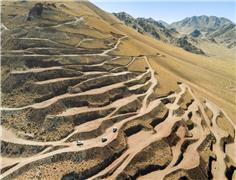
AbraSilver Resource said on Monday it has received investments from both Kinross Gold and Central Puerto, Argentina’s ...
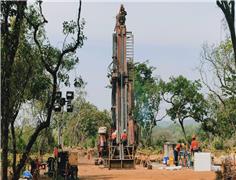
A prefeasibility study for Predictive Discovery’s (ASX: PDI) Bankan gold project in Guinea gives it a net present value ...
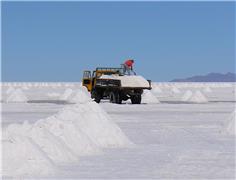
Chile’s state-run miner Codelco plans to select a partner for a future lithium project in one of the country’s top salt ...
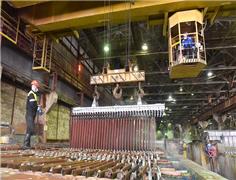
The London Metal Exchange (LME) on Saturday banned from its system Russian metal produced on or after April 13 to comply ...
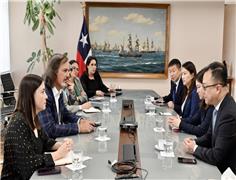
Chile’s SQM called another investors meeting at the request of its second-largest shareholder, Tianqi Lithium Corp., ...
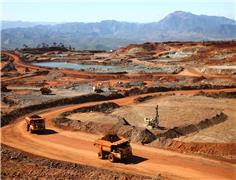
French mining group Eramet said on Wednesday it had reached an agreement with the French government to continue its ...
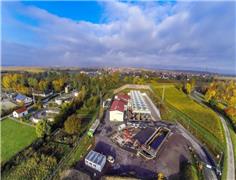
Lithium supplier Vulcan Energy on Wednesday announced the start of production of the first lithium chloride at its ...
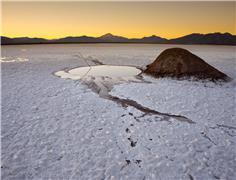
A stuttering recovery in lithium prices is providing a fresh reminder of why the dramatic rally of recent years was ...
No comments have been posted yet ...